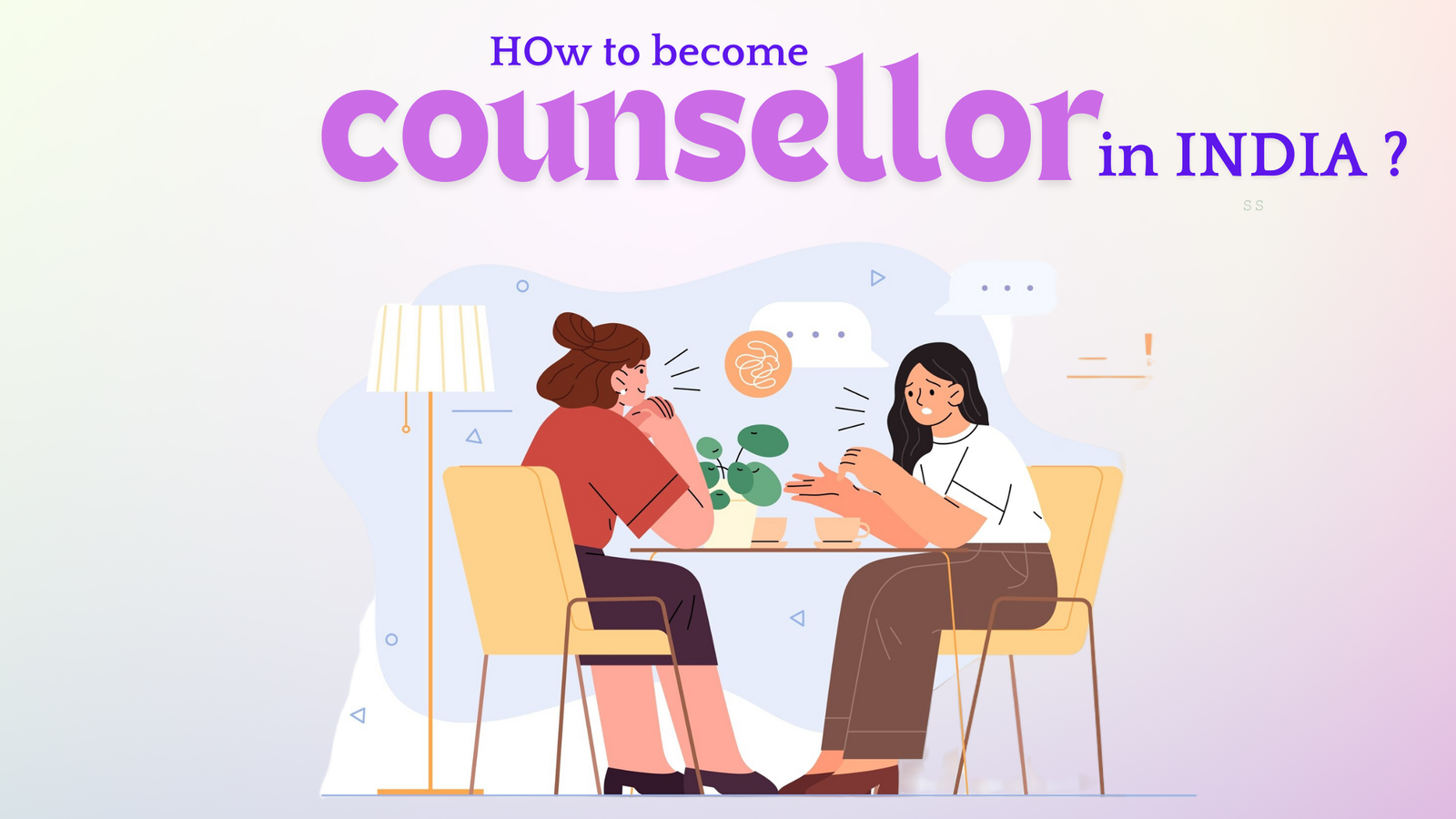How to Become a Counsellor in India?
Aishwarya Yadav 1st August 2024
10 Key Ways to Become a Counsellor in India
A mental health practitioner who assists people in overcoming obstacles and achieving personal growth is a counsellor. Counsellors are essential in helping India deal with the growing number of mental health issues. Helping people develop resilience and emotional well-being brings great gratification to those in this line of work. A fulfilling and influential career path, mental health counselling is in high demand due to growing public awareness of mental health issues.
Significance of Being a Counsellor
Being a counsellor is important as it involves guiding individuals through their personal, academic, and career challenges. Counsellors provide essential support, helping people develop coping strategies, improve their mental health, and make informed decisions. They play a crucial role in fostering self-awareness, resilience, and personal growth. By offering a safe and non-judgmental space, counsellors enable individuals to explore their feelings and thoughts, leading to better problem-solving and emotional well-being. Ultimately, the work of a counsellor positively impacts lives, promoting healthier and more fulfilling life choices.
List of Ten Best Ways to Become a Counsellor in India
You can become a notable counsellor in India. India is a place where the demand for counsellors is undying. Below is the list of ten ways to become a counsellor in India:
1. Recognize the various counselling specialisations
It's important to comprehend the range of counselling specialisations offered before beginning the process. Typical areas include the following:
- Clinical counselling: Concentrates on psychological problems and mental health conditions.
- Educational counselling: Assists students in choosing their courses of study and careers with knowledge.
- Professional counselling: Helps people investigate and select appropriate professional pathways.
- Family and Marriage Counseling: Deals with family dynamics and relationship problems.
- Counselling on Substance Abuse: Assists those who are addicted.
2. Obtain a bachelor's degree
A college degree, particularly in sociology, psychology, or social work, might be a great starting point for a career in counselling, while it's not usually required. Nonetheless, a lot of universities now welcome graduates from other fields.
3. Obtain a master's in counseling
To become a certified counsellor in India, one usually needs a Master's degree in counselling or a similar discipline. A comprehensive understanding of counselling ideas, methods, and ethics is provided by this degree.
4. Acquire real-world experience
Volunteering and internships are essential for acquiring real-world counselling experience. Seek out chances in non-profit organizations, schools, hospitals, and rehabilitation facilities.
5. Sign up with an oversight organization
After completing your coursework and gaining experience, you should register with an Indian counselling regulatory agency that is recognized. A permit to practice must be obtained by completing this step.
6. Acquire the required certifications
You may need to obtain additional certificates based on your area of expertise. Credibility can be increased by holding certificates in substance addiction psychological therapy, family and marriage therapy, or career counselling, for instance.
7. Create a powerful network for professionals
Making connections with other psychologists, counsellors, and mental health specialists through networking can offer tremendous support and chances for career advancement. To grow your network, go to seminars, workshops, and conferences.
8. Acquire focused knowledge
Consider learning specialist skills like eye motion desensitization and reprocessing (EMDR), mindfulness-based stress reduction (MBSR), or cognitive-behavioural therapy (CBT) to stand out in a competitive profession.
9. Ongoing education and career advancement
The counselling profession is always changing. Maintain current knowledge of the most recent ideas, research, and best practices by continuing your education and professional development.
10. Examine employment or private practice
You have two options after earning the required credentials and acquiring experience: either launch an independent private practice or work for a hospital, school, counselling centre, or another establishment.
These are the ten key ways to become a counsellor in India. You should assess whether counselling fits your interests and pursue it.
List of 10 Significances of Having a Counselling Degree
A counselling degree provides a thorough understanding of mental health, therapeutic methods, and human behaviour. With this understanding, they can significantly improve the daily lives of others. These are some noteworthy advantages:
- Deep Understanding of Human Psychology: A degree in counselling offers a strong basis for studying human motives, emotions, and behaviour.
- Growth of Therapeutic Skills: You pick up vital counseling skills including empathy, active listening, and rapport-building.
- Legal and Ethical Knowledge: To ensure their professional integrity, counsellors receive training in legal and ethical frameworks.
- Career Options: Obtaining a degree in counselling provides access to a range of employment opportunities, such as working in private practice, hospitals, schools, and community organizations.
- Personal Development: Learning about counselling can result in a great deal of introspection and self-realization.
- Capacity to Assist Others: It is a privilege for counsellors to assist people during trying times and to advance their well-being.
- Good Communication Skills: The degree strengthens the communication skills that are essential to counselling.
- Compassion and Empathy: Counsellors acquire a profound capacity for compassion and empathy, which is necessary for establishing therapeutic alliances.
- Crisis Intervention Skills: Counselors who receive crisis intervention training are more prepared to manage crises.
- Lifelong Learning: Professional development and ongoing education are essential in the ever-evolving area of counselling.
These are the ten significance of having a counselling degree. It's not about being a counsellor in India, it's about incorporating your knowledge and skills and making a difference in the lives of others.
If you are still stuck visit https://www.futurelift.in/. We are a team of career counselling professionals and are on a journey to shape your future. We are delighted to share with you that we have counselled more than 10,000+ students from all over India. Do like and follow our LinkedIn page for more career-related insights.
FAQs:
Q1: What types of employment can I get after earning a counselling degree?
A counselling degree leads to a variety of professional opportunities, including mental health counselling, career counselling, educational counselling, marriage and family therapy, and substance misuse counselling. You may work in your practice, schools, hospitals, rehab centres, or community organisations.
Q 2: What skills do I gain with a counselling degree?
A counselling degree cultivates strong relationships, interaction, and problem-solving abilities. You'll learn how to actively listen, empathise, establish rapport, and offer support to people from all backgrounds.
Q 3: How long does it take to earn a counselling degree?
The length of a counselling degree varies with the level of study. A Master's degree in Counseling normally takes two to three years.
Q 4: Is there a demand for counsellors?
Yes, there is an increased need for mental health practitioners, especially counsellors. As people become more aware of the importance of mental health, the demand for skilled counsellors grows.
Q 5: How do I become a qualified counsellor?
To become a certified counsellor, you normally require a master's degree in counselling, monitored clinical practice, and pass a licensing exam. The specific standards differ by state or region. For further information, contact your local licensing board.






